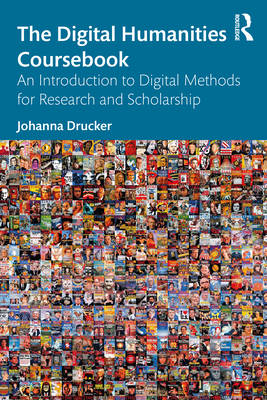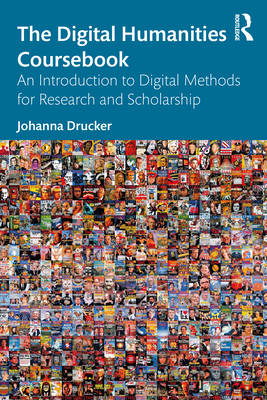
- Afhalen na 1 uur in een winkel met voorraad
- Gratis thuislevering in België
- Ruim aanbod met 7 miljoen producten
- Afhalen na 1 uur in een winkel met voorraad
- Gratis thuislevering in België
- Ruim aanbod met 7 miljoen producten
The Digital Humanities Coursebook
An Introduction to Digital Methods for Research and Scholarship
Johanna DruckerOmschrijving
The Digital Humanities Coursebook provides critical frameworks for the application of digital humanities tools and platforms, which have become an integral part of work across a wide range of disciplines.
Written by an expert with twenty years of experience in this field, the book is focused on the principles and fundamental concepts for application, rather than on specific tools or platforms. Each chapter contains examples of projects, tools, or platforms that demonstrate these principles in action. The book is structured to complement courses on digital humanities and provides a series of modules, each of which is organized around a set of concerns and topics, thought experiments and questions, as well as specific discussions of the ways in which tools and platforms work. The book covers a wide range of topics and clearly details how to integrate the acquisition of expertise in data, metadata, classification, interface, visualization, network analysis, topic modeling, data mining, mapping, and web presentation with issues in intellectual property, sustainability, privacy, and the ethical use of information.
Written in an accessible and engaging manner, The Digital Humanities Coursebook will be a useful guide for anyone teaching or studying a course in the areas of digital humanities, library and information science, English, or computer science. The book will provide a framework for direct engagement with digital humanities and, as such, should be of interest to others working across the humanities as well.
Specificaties
Betrokkenen
- Auteur(s):
- Uitgeverij:
Inhoud
- Aantal bladzijden:
- 238
- Taal:
- Engels
Eigenschappen
- Productcode (EAN):
- 9780367565756
- Verschijningsdatum:
- 25/03/2021
- Uitvoering:
- Paperback
- Formaat:
- Trade paperback (VS)
- Afmetingen:
- 154 mm x 230 mm
- Gewicht:
- 376 g

Alleen bij Standaard Boekhandel
Beoordelingen
We publiceren alleen reviews die voldoen aan de voorwaarden voor reviews. Bekijk onze voorwaarden voor reviews.












